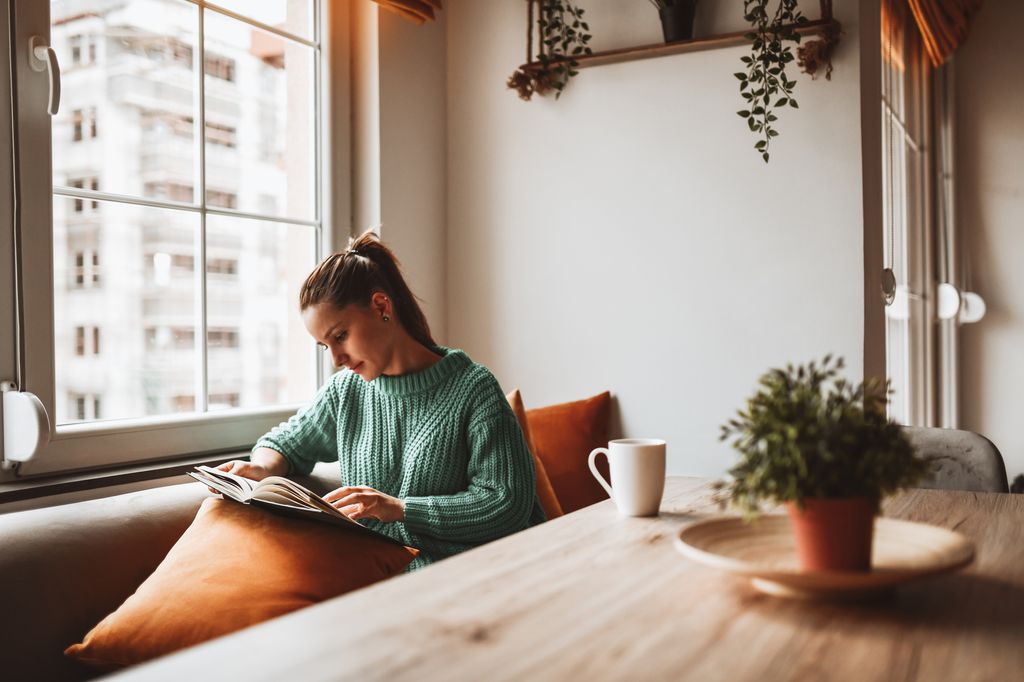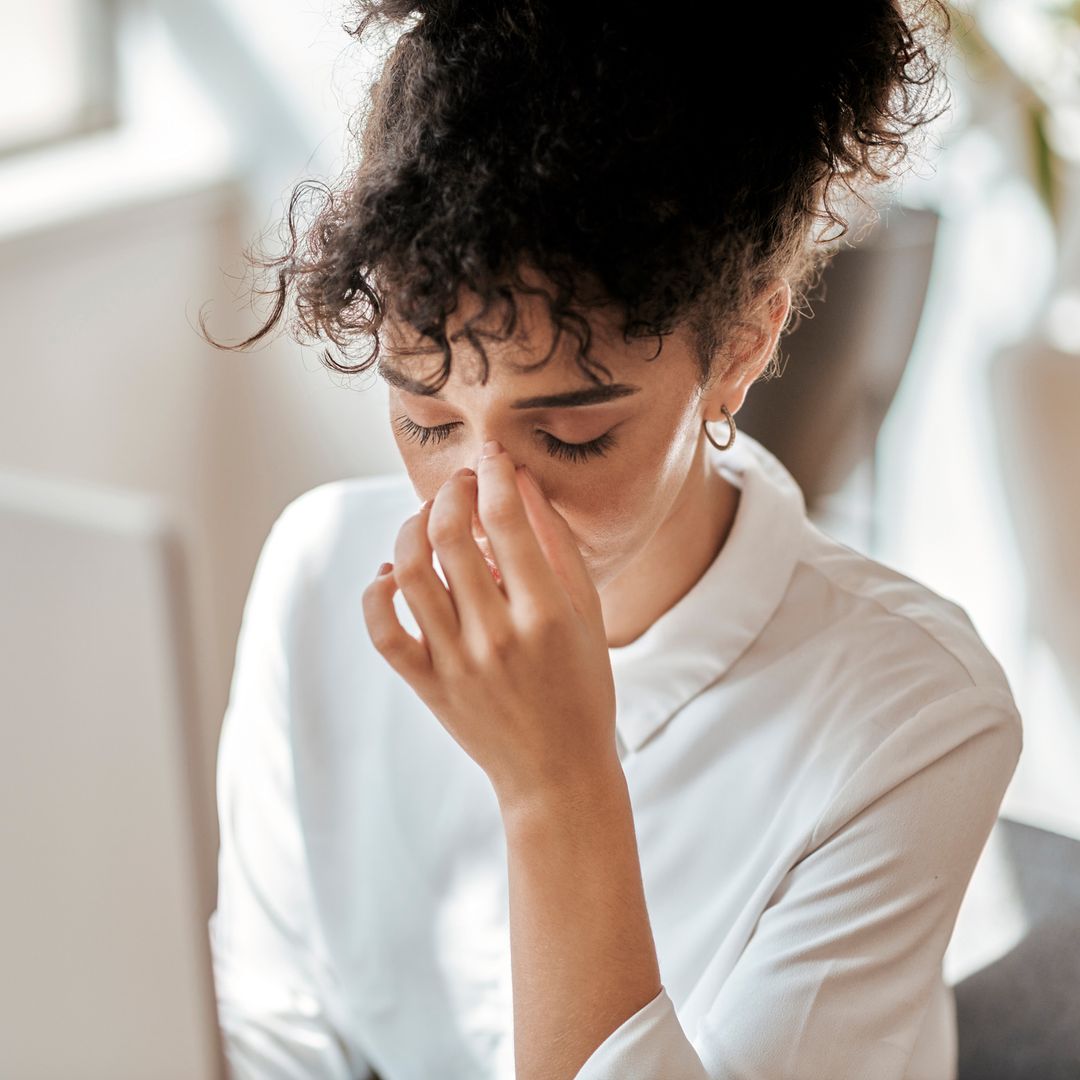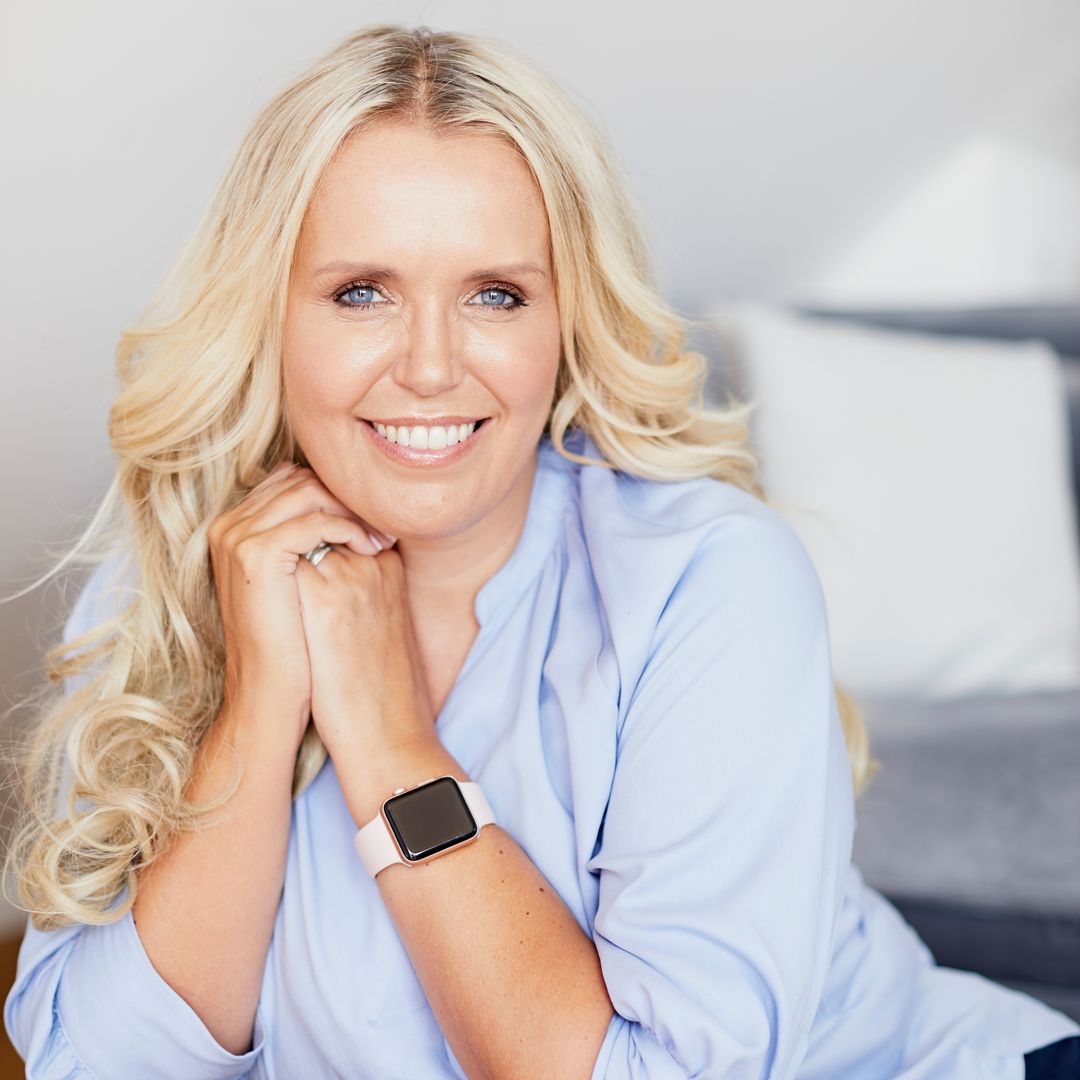How often do you get to the end of a busy week and relish the idea of doing nothing over the weekend?
There are few feelings as satisfying as saying, 'Oh, nothing really,' when your colleagues ask about your evening plans after a stressful day of work, with a new study by David Lloyd Clubs finding that 41 per cent of people asked would rather have a free weekend doing nothing than one filled with plans.
We might ask ourselves, 'Why do I feel happy doing nothing?' and the answer could lie in the fact we're so busy all the time. That same survey revealed that 60 per cent of people can’t remember the last time they switched off and 22 per cent wouldn’t know how to.
“As humans, we’re not designed to be constantly busy or for our brains to be functioning 24/7,” cautions Julie Leonard, founder of The Happiness Club community.
Our busy lives need an antidote, and that is why we often feel so happy doing nothing. It's not laziness, it's a necessity. “We need time to decompress, to process our day, our thoughts and our emotions. Rest is essential to complete the stress cycle and reset back to a healthier level," Julie adds.
Psychotherapist and founder of Luxe Psychology Practice Jade Thomas agrees, adding: "Resting and doing nothing allows our brains to reset. It helps us to regulate our emotions and maintain the ability to focus. You might also notice it enhances your creativity and helps you make better decisions."
Why is being busy all the time bad for us?
Jade adds that being too busy too often can be overwhelming and stress-inducing. "If continued over a long period of time, being busy can lead to burnout and chronic stress which can impact both our mental health and our physical health."
Chinese medicine expert Katie Brindle agrees, adding: "Relentless busyness takes its toll on our minds and our bodies. The majority of us are already in a state of depletion; we are overwhelmed with responsibilities and commitments even before we factor in our careers.
"Burnout is real – that chronic physical and emotional exhaustion that can leave us feeling stressed and anxious, sleep deprived and sluggish. We wake up exhausted and go to bed exhausted, so we begin to develop physical ailments which, over time, develop into bigger issues.
READ: Why you really need to schedule some alone time this month
"We see it in our skin, our aching joints, our thinning hair and our disrupted menstrual cycles," she cautions of how being busy can impact our health.
"Being constantly busy, rather than allowing us to achieve more, can actually age us prematurely, slowing our productivity, stunting our creativity, robbing us of our joie de vivre and leaving no time for our own needs – it can make us ill and depressed if we are not careful," Katie says.
Why do we see busyness as a good thing?
In our eternally on-the-go lives, productivity is king, as Dr. Emma Hepburn, author of A Toolkit for Happiness says. “We tie productivity and achievement into our worth, believing pausing and resting are for the weak. This is problematic for our happiness – it means we don’t pause to break, to reflect, or to just be.”
When we should be resting, we often fill the gaps with more tasks, activating the body’s drive system, revving it up for action, Dr. Emma explains. “This might bring us a sense of achievement, meaning and even joy. But too much of this revving pushes the system out of balance.
“Long-term activation of the system without rest and recuperation leads to stress, which has a negative impact on happiness and health,” she adds.
We need to reframe rest. Rather than thinking that doing nothing is lazy and feeling guilty for doing nothing, we need to realise it's essential for our happiness, and lean into the peace that doing nothing brings.
The benefits of doing nothing
"Rest is different from sleep and is important for our health,” Julie explains. “Rest is a valuable way to take care of our emotional, physical and spiritual needs.
"It helps us create balance in our lives and a sense of peace and calm - all essential components of happiness - and we need to do more of what makes us happy.
READ: What are limiting beliefs and why are they stopping you from feeling happy?
“We must rest to recharge and nurture ourselves in order to be the best version of ourselves,” she adds.
How to reframe doing nothing
We need to see doing nothing as productive in itself, rather than as wasted time.
“Doing nothing helps our body and brain switch off that revved up response,” Dr. Emma says. Studies show we tend to be more productive - and happier as a result - if we stop and take time out," she adds.
“Rest is not a waste of time; it is so important for health and happiness that it needs to have priority status. It’s an activity to be planned and appreciated in its own right.”
NEED TO KNOW: How to practice gratitude for a happier life: an expert's guide
How to make time to do nothing
As people who love to jampack their diaries with dinners, events and appointments, scheduling time simply to rest seems silly - but it’s essential, especially if you’re a perpetually busy person.
Downtime shouldn’t just be a reward for completing tasks, according to Dr. Emma. “Planning downtime means it is more likely to happen,” she says.
This can be in the long term, such as making sure you use all your allocated annual leave from work to ensure you have planned rest periods throughout the year, to daily breaks. “Write your lunch breaks and tea breaks into your calendar – block them off as protected time,” Dr. Emma advises. “Plan what you will do in these pockets that will help you relax.”
1. To-don’t lists
We all have to-do lists as long as our arms, but what about a to-don’t list?
Schedule ‘to don’t’ time each day to focus on actively resting. Listen to a song, read a chapter of your book, or do something small just for the joy. This time should not be spent ticking things off your to-do list.
2. Break between tasks
The satisfaction of ticking things off your to-do list makes it tempting to whizz through the jobs, but Dr. Emma advises against this.
“Allow yourself pauses between tasks, perhaps go for a walk before you start the next job,” she says. “Give yourself the gift of space, time and opportunity to pause.”
DISCOVER: Why you'll never be happy without this one key thing
3. Create a resting space
If working from home has transformed your sanctuary of a bedroom to a place you work, this is all the more important.
Carve out an area in your home simply for resting, suggests Dr. Emma. “Places and spaces can provoke particular feelings, and some are conducive to happiness,” she says.
She advises us to think of a space where we felt comfortable, where we felt our body relax and recreate this for our resting place. Maybe it has soft pillows, soothing tones or pretty flowers - whatever it was that made you feel cocooned, try to replicate this to create somewhere you want to go for time out.
“A study found that those who described their living spaces as ‘restful and restorative’ as opposed to ‘cluttered’ were less likely to be depressed or fatigued,” Dr. Emma says.
WOW: I'm ridiculously indecisive – but this 5-minute trick overhauled my decision-making
4. Work out what rest looks like to you
Rest looks different for everyone. For freelance PR expert Erica Vonderwall of Colourful Comms, a slow life is key to her happiness.
“My own personal happiness is directly linked to how well rested, well fed, and well entertained I am,” she told us.
“I make sure those things are all a focus in my day,” she says. “I really enjoy a slow life, and while that's not for everyone, a good book or bingeable TV show make me happy, especially if there's a snoozy dog curled up next to me.”
For body acceptance influencer Nelly London, her rest sees her take time away from her phone, while Julie’s rest entails spending time with her family, eating well and exercising.
“Reading books and connecting with friends are also important for my happiness, so I make time to focus on them. It helps me to recharge and nurture myself in order to be the best version of myself.”

















